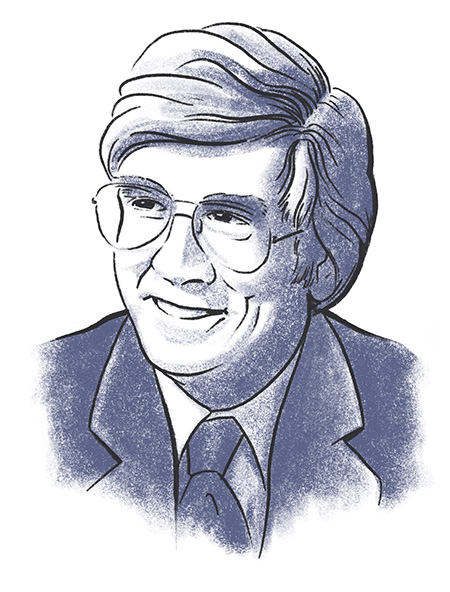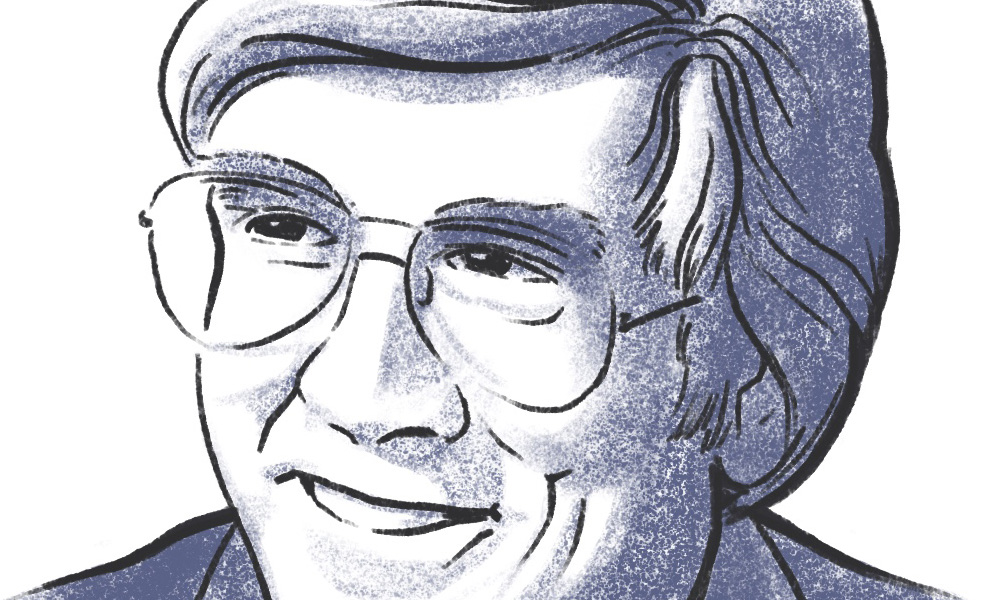
Friends and colleagues at the University of Rochester are remembering Dean A. Miller, a professor emeritus of history who held a secondary appointment in religion and classics.
Miller taught at the University for three decades—his entire academic career—from 1963 to 1993. An active scholar throughout his life, he published his last book, The Epic Hero (Johns Hopkins University Press, 2000) seven years after his retirement, and continued to pen scholarly papers, co-edit a festschrift, and attend academic conferences.
Selected by Choice Magazine as an Outstanding Academic Title, The Epic Hero is the product of 20 years of scholarship, drawing on disciplines as diverse as classics, anthropology, psychology, and literary studies. Miller examines heroes in battle and quest, their political status, and their relationships to established religions—spanning Western epic traditions, including Greek, Roman, Nordic, and Celtic, as well as Indian and Persian legacies.
Miller, whose research ran the gamut from the Byzantine Empire, to the dual kingship system in Sparta, the Theban plays of Sophocles, Greek mythology, heroes in general, the anthropologist FitzRoy Richard Somerset, and even Indo-European warrior hairdos, also authored two earlier books, The Byzantine Tradition (Harper & Row, 1966) and Imperial Constantinople (John Wiley, 1969).
An unapologetic admirer of Georges Dumézil, a French comparative philologist best known for his analysis of sovereignty and power in Proto-Indo-European religion and society, Miller published several papers on the philologist’s work and relevance.
“Being a Dumézilian involves a lot of difficult languages, a lot of myth and ritual, a lot of structural thinking and imagination—so it’s got it all if you are a humanist,” says Miller’s friend Douglas Brooks, a professor of religion, who first met Miller some 33 years ago when Brooks himself had just arrived on campus.
“Much of what the Dumézilians say is strangely true and even less of it is provable. It was long out of fashion before I learned it, and Dean Miller was still doing it, even to the last.”
Brooks describes his late friend as “a character. He’d wander into your office, shoot the breeze, talk about scotch, and wear a kilt to important events.”
A Chicagoan by birth, Miller obtained his bachelor degree in history from Northwestern University, his master’s in history from Columbia University, and his PhD in history from Rutgers University where he wrote his dissertation about Byzantine diplomacy between the 6th and 10th century.
Incidentally, his education was interrupted by a three-year stint from 1955 to 1958 in the Counter-Intelligence Corps of the US Army. Miller spoke—or had a working knowledge of—a number of languages, including Latin, Ancient Greek, French, German, and Russian. And, by his own admission, he could “handle Old Church Slavonic and Bulgarian, if needed,” he wrote somewhat tongue-in-cheek in his curriculum vitae.
After a very brief stint as an adjunct professor at Saint Peter’s College (now Saint Peter’s University) in Jersey City, New Jersey, he arrived in Rochester in September 1963 as a newly-minted assistant professor. A prolific writer, Miller published his first two books barely four years apart and within seven years had advanced from assistant to full professor.
During his last few years at Rochester, Miller commuted from Chicago. After his retirement, he returned regularly with his wife Marta to visit friends and family in the area, usually in September to participate in the Memorial Art Gallery’s Clothesline Festival.
“My wife, Nora Walter, and I would often meet them to discuss family, antiques, and, of course, Dean’s latest forays into mythology, whether it was Morrighan the Irish War goddess, or some other fascinating subject,” recalls his friend Emil Homerin, a professor of religion and chair of the Department of Religion and Classics.
Others remember Miller for his generosity. Elias Mandala, a professor of African history, says, “Dean created time for me. He was my editor-in-chief, reading and correcting every piece I have published since the early 1990s.” That includes Mandala’s book, The End of Chidyerano (Heinemann, 2005) and an essay published just last year about cotton. “He edited each piece thoroughly, line by line, cutting out redundancies, and correcting my Africanized English. He is irreplaceable.”
Married three times, Miller is survived by his four sons, Douglas, Scott, Kenneth, and Eric, and his stepson, John. He is preceeded in death by his last wife, Marta Swift, who died in 2017.
“Marta was the great love of his life. They met in college and their relationship was a rekindled one that lasted 36 years,” says Eric, whose mother Mona Miller was his father’s second wife.
Miller delivered what turned out to be his final paper at the “Thinking About Mythology in the 21st Century” colloquium at the University of Edinburgh, Scotland. He died two months later, on January 28, at his home in Chicago at the age of 87.





